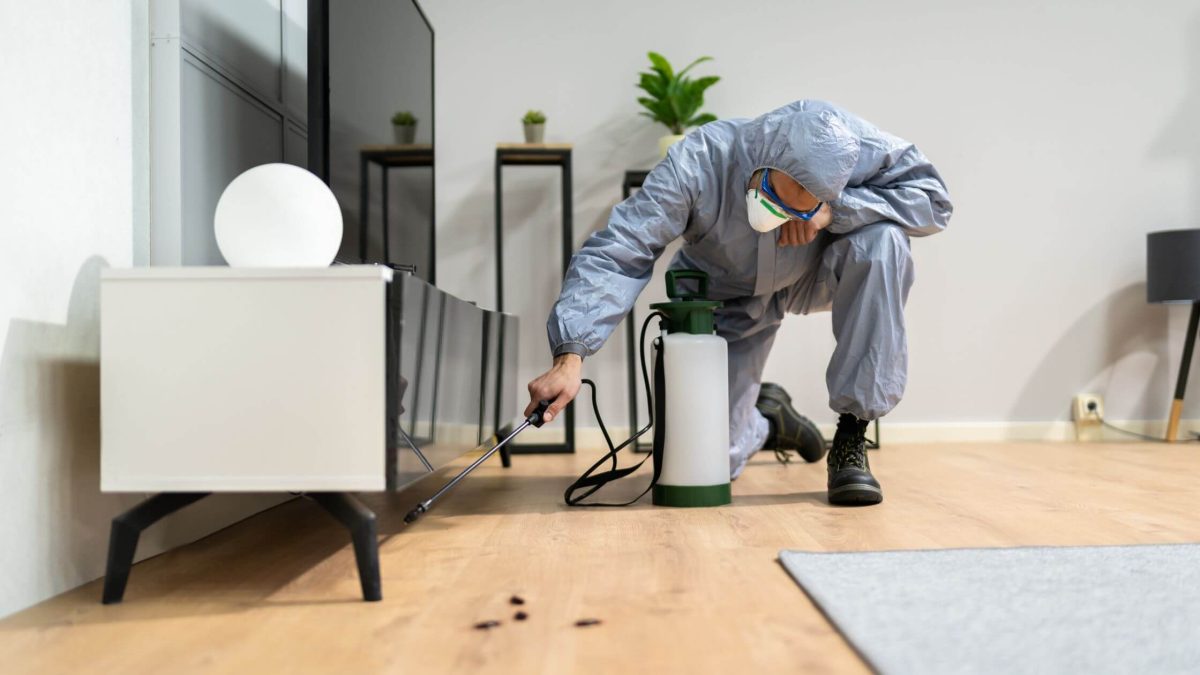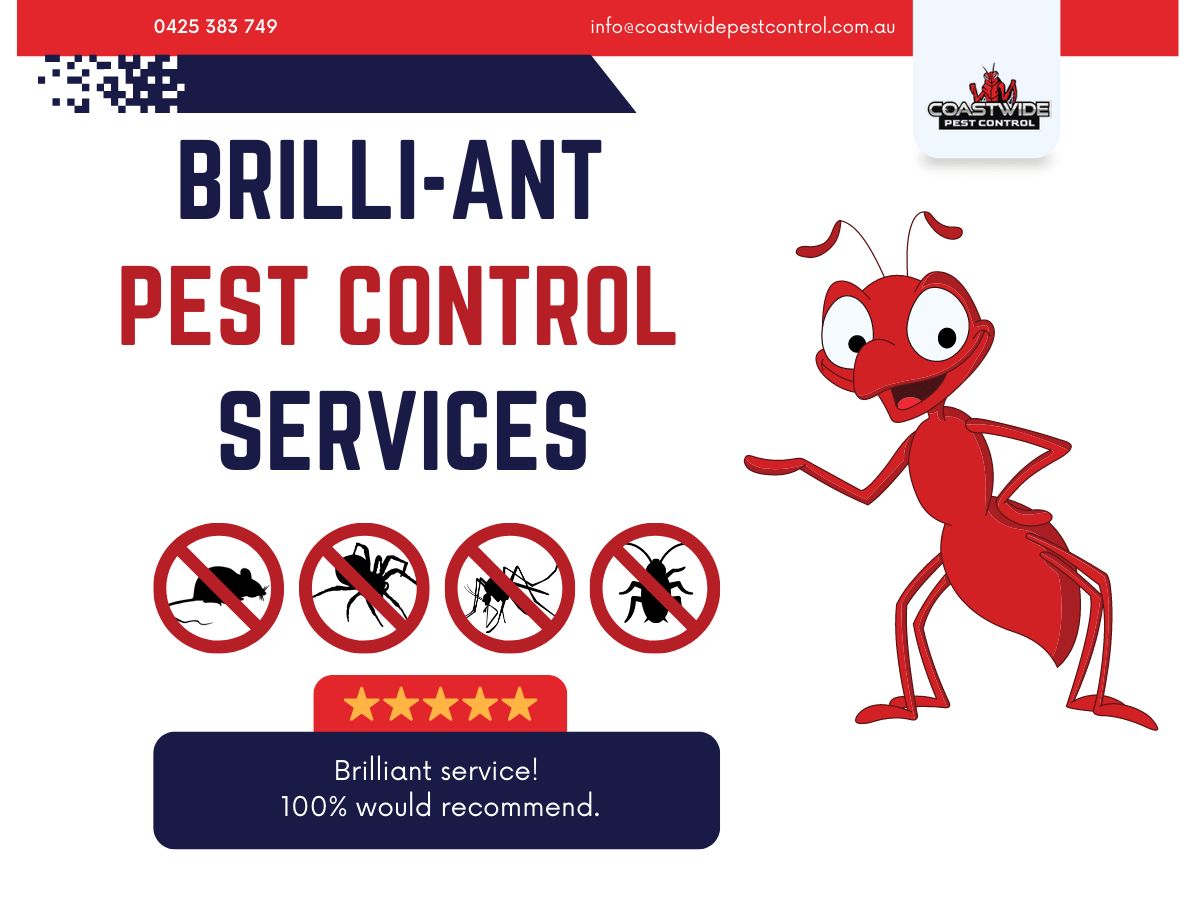Essential End of Lease Pest Control Treatment
End of Lease Pest Control Treatment - Why it’s Essential for Landlords and Tenants
As you plan to move out of your rental home on the Central Coast, there's a critical, yet often overlooked step that's essential for both renters and landlords: end-of-lease pest treatment. In a region where the vibrant natural surroundings can sometimes mean uninvited six-legged or furry guests, ensuring a property is pest-free at the end of a lease is not just a courtesy, but a necessity. Whether it's a cosy beachside apartment or a sprawling suburban home, the importance of this final pest control sweep goes beyond mere cleaning. It’s about safeguarding health, protecting investments, and maintaining the pristine condition of properties in this beautiful part of Australia. As experts in the field, our team at Coastwide Pest Control understand the nuances of local pests and the crucial role of end-of-lease treatments in keeping rental properties in the Central Coast both appealing and habitable.

Understanding Pest Inspections
In the world of property management and real estate, the value of a property isn't just in its aesthetic appeal or location; it's also in its upkeep, particularly in pest control. End-of-lease pest treatment is not just a cleaning routine; it's a critical step in maintaining and even enhancing the value of a property. For landlords, ensuring a property is pest-free at the end of a lease is akin to maintaining its structural integrity and aesthetic value. Pests, left unchecked, can cause significant damage – termites in the woodwork, rodents in the wiring, cockroaches in appliances – which not only degrades the property but also diminishes its market value and appeal to future tenants.
Beyond the physical aspects, there are legal and ethical considerations. Landlords have a legal obligation to provide a habitable property, and tenants have a responsibility to maintain the cleanliness of the premises. Pest infestations can blur the lines of these obligations. For instance, if a tenant encounters a pest issue that stems from a pre-existing condition or due to structural vulnerabilities of the property, the onus may fall on the landlord. Conversely, if an infestation occurs due to the tenant's lifestyle or neglect, they might bear the responsibility.
This shared responsibility underscores the need for clear communication and agreement on pest control measures, ideally documented within the lease agreement. Ethically, ensuring a pest-free environment is a part of providing a safe and healthy living space. No tenant wants to move into a property with a hidden pest problem, just as no landlord wants their property known for pest issues.
End-of-lease pest treatments, therefore, play a dual role: protecting the property’s value and ensuring that legal and ethical standards in property rental and management are upheld. Coastwide Pest Control, with its deep understanding of the Central Coast's pest challenges, is positioned to provide effective solutions that benefit both landlords and tenants.
The Impact of Pest Infestations on Lease Agreements
The presence of pests in rental properties can have far-reaching implications, extending beyond mere inconvenience to potentially serious legal consequences. Pest infestations, if not adequately addressed, can breach the terms of lease agreements, leading to disputes and legal challenges.
When a tenant signs a lease, they generally agree to keep the property clean and report any issues that may cause damage. Conversely, landlords must ensure the property is habitable and free from health hazards, which include pest infestations. If a tenant encounters an infestation, and it can be proven that it existed prior to their occupancy or resulted from structural issues, the landlord could be held responsible. This could lead to legal requirements for pest eradication, possible rent abatements, or in severe cases, legal action for failing to provide a habitable living environment. Conversely, if an infestation is due to a tenant's negligence, they could be held liable for the cost of pest control and any associated damages.
Beyond the legalities, the reputation of a rental property is crucial for ongoing tenancy agreements. Properties known to have pest issues can become less desirable in the rental market. Prospective tenants are likely to be deterred by reports of infestations, leading to longer vacancy periods and potential loss of income for landlords. Furthermore, word-of-mouth and online reviews can significantly impact a property's standing in the community. In the Central Coast's tight-knit communities, maintaining a good reputation is vital for continuous rental success.
Therefore, addressing pest problems promptly and effectively is not just about meeting legal obligations but also about preserving the attractiveness and reputation of rental properties. Regular pest control measures, including end-of-lease treatments by experienced providers like Coastwide Pest Control, are essential in ensuring rental properties remain appealing and legally compliant.
Determining Responsibility for End-of-Lease Pest Treatment
The question of who bears the responsibility for end-of-lease pest treatment in rental properties is not always straightforward. It hinges on a blend of legal obligations, lease agreement specifics, and the nature of the infestation.
Landlord's Responsibility
- Providing a Pest-Free Property: Landlords are obliged to offer a habitable living space at the start of the lease, which includes ensuring the property is free from pests.
- Structural Issues Leading to Infestation: If an infestation is linked to structural problems with the property, such as cracks or unsealed openings, the landlord is typically responsible for the pest control measures.
Tenant's Responsibility
- Maintaining the Property: Tenants are expected to keep the property clean and well-maintained. Infestations resulting from neglect or poor housekeeping usually fall under their responsibility.
- End-of-Lease Cleaning: In cases where the lease agreement specifies, tenants may be required to conduct a pest control treatment as part of their end-of-lease cleaning and maintenance obligations.
Importance of Clear Lease Terms
- Specific Pest Control Clauses: Lease agreements should clearly outline responsibilities for pest control, including maintenance duties and procedures for reporting pest problems.
- End-of-Lease Requirements: Explicit terms regarding who is responsible for end-of-lease pest treatment can prevent misunderstandings and disputes.
Navigating Responsibilities for Pest Control
Engaging professional services like Coastwide Pest Control can be beneficial for both landlords and tenants. Such experts not only efficiently handle pest issues but also provide valuable advice on maintaining a pest-free environment. This professional approach ensures a smooth end-of-lease process, safeguarding the interests of both parties.
Components of an End-of-Lease Pest Treatment
End-of-lease pest treatments are essential in ensuring rental properties remain inviting and healthy for future occupants. The process generally involves a comprehensive approach, tailored to address the unique challenges of each property. Coastwide Pest Control offers specialised services, ensuring that every aspect of pest control is meticulously handled.
General Treatment Process:
The typical end-of-lease pest treatment process includes several key steps:
- Inspection: A thorough examination of the property to identify any signs of pest activity.
- Treatment Plan: Creating a customised plan based on the inspection findings.
- Treatment Execution: Using safe and effective methods to treat the identified pest issues.
- Preventative Advice: Providing recommendations to landlords and tenants to prevent future infestations.
Coastwide Pest Control’s Specific End of Lease Options
The importance of end-of-lease pest treatment in rental properties cannot be overstated. It's a crucial step that ensures the health and safety of tenants, preserves the structural integrity and appeal of the property, and upholds the reputation of landlords. Both renters and landlords benefit significantly from this process, which serves as a preventive measure against potential legal issues and maintains the property’s market value. As you navigate the complexities of end-of-lease responsibilities, consider the expertise of Coastwide Pest Control. Our tailored treatment options and deep understanding of the Central Coast's unique pest challenges make us an ideal partner for your pest control needs. Choose Coastwide Pest Control for reliable, effective end-of-lease pest solutions, ensuring your property remains a desirable and pest-free environment for all.

